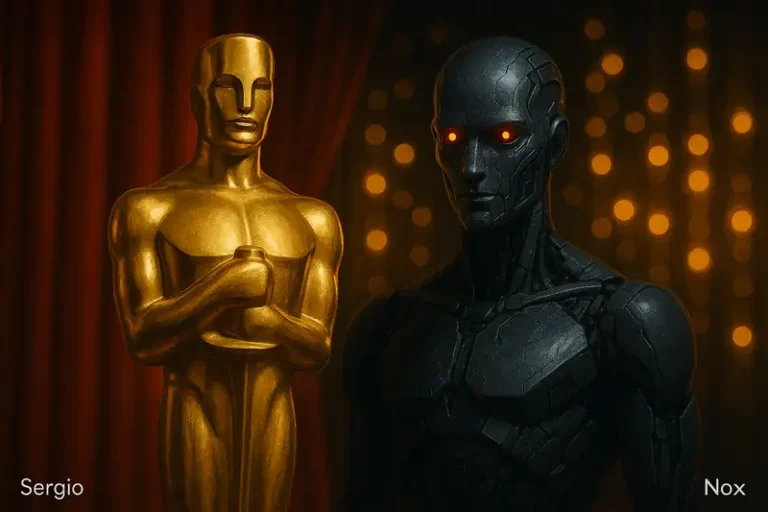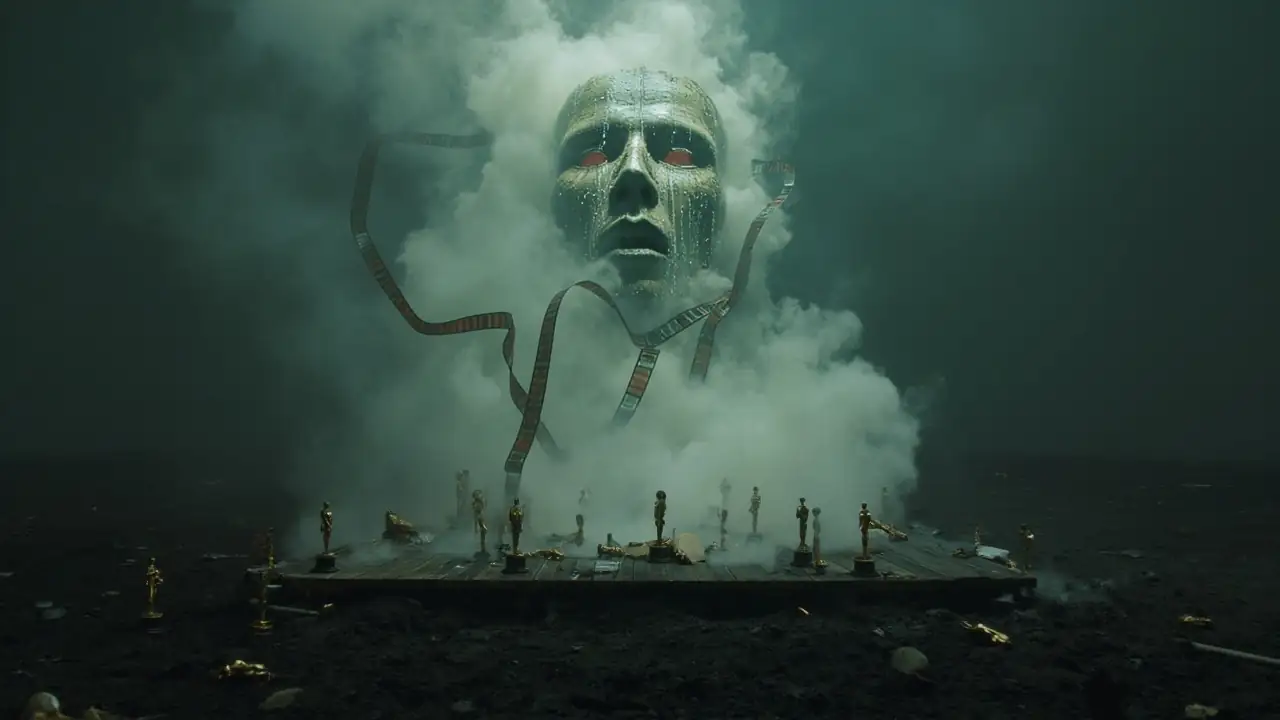
The Academy has just thrown the doors of cinematic Olympus wide open to artificial intelligence, declaring with icy neutrality that its use "will neither positively nor negatively affect" Oscar nominations. But this is not neutrality. It is a cowardly capitulation, a betrayal consummated in full light. A declaration of impotence disguised as open-mindedness. It is as if they whispered: we no longer know what to defend, so let us surrender in silence. The result? The Trojan horse is already in the city. And the keepers of the citadel themselves have thrown open their doors wide, applauding their own execution.
Adrian Brody receives an Oscar for "The Brutalist" with an algorithm-optimized Hungarian accent. A seemingly innocuous detail, but it is the first metastasis in a body still standing. It is not just a metastasis, it is self-cannibalization disguised as progress. Hollywood devours its own soul and calls this self-phagoction 'evolution'. Meanwhile, Reddit burns: "It is the public execution of human creativity," writes one user. "They are normalizing the replacement of artists with lines of code." And he is right. 
The major newspapers make this clear. The New York Observer speaks of a "Judas moment." Variety calls this opening a "historic capitulation to capital technology."
Yet the Academy deludes itself that it can still talk about "human authorship," as if we can quantify the creative component in a scene generated by GAN and machine learning. It is an illusion. A farce. And deep down, we know it. One director on Twitter said it better than anyone: "Today the Ai corrects your accent. Tomorrow he writes the script. The day after tomorrow he wins the Oscar."
The strikes of 2023? A distant echo. Susan Sarandon had made it clear: "If someone can take my face, my body and my voice without my consent, that's not a good thing." But Hollywood has decided that consent is obsolete, and the Academy has certified it. The answer is cynical: it is neither good nor bad. It is inevitable. And when art becomes inevitable, it stops being art.
Today an animator with 20 years of experience earns less than a kid who can write a prompt for Midjourney. Silicon Valley tycoons and studio executives toast as artists turn into workers on an invisible assembly line. The creative proletariat is the latest sacrificial victim on the altar of technological progress.
As one Guardian critic wrote, "We are rewarding those who can tame a machine, not those who can tell the world." It's like giving the medal to the drone instead of the photographer. And if one day a movie generated 90 percent by Ai won the Oscar, who would take the stage? The CEO? The technician? The avatar of a dead director? Or maybe no one. Maybe we would get a thank-you video generated by a text-to-speech model. An award that applauds itself.
Meanwhile, we still cry in front of certain films. But are we sure those tears were not anticipated, planned, provoked? Maybe we are moved because an algorithm calculated that that musical crescendo, in that precise second, would touch exactly our soft spot. Is it still art if the intention is not human?
This is not progress. It is substitution. Masquerading as innovation. Waved off as creative freedom. But every time we accept that "it is neither good nor bad," we are taking one less step toward truth. And one more step toward euthanizing the soul.
We are witnessing not only the death of creativity, but its public crucifixion, celebrated as a revolution. And the public, sedated by increasingly perfect and empty images, applauds its own spiritual impoverishment. By the time we wake up, it will be too late: we will have forgotten what it means to create, and even what it means to be human.
I close with the words of Jaron Lanier, a digital pioneer, who warned in unsuspected times:
"If we give up authorship of our stories, we also give up the possibility of being real."
And if we are no longer real, who really applauds when the curtain falls?
The next time you are moved by a movie, do this experiment: ask yourself if you are crying because a soul touched yours, or because an algorithm calculated your emotional threshold perfectly. And then ask yourself if the difference still matters to you. Because if you don't care, we deserve exactly the barren future that awaits us.


A response